SUMMARY
This is AI generated summarization, which may have errors. For context, always refer to the full article.

AT A GLANCE
- From his campaign in 2016 until his final weeks in office, President Rodrigo Duterte has unapologetically made public sexist remarks. Women’s advocates have constantly called the President out on them.
- Experts and advocates say Duterte’s jokes about rape have dangerous consequences in normalizing misogyny in Philippine culture.
- Duterte greenlighted a number of policies protecting the rights of women and children – though these were pushed by advocates and legislative champions of gender equality.
- Gender-based violence remains prevalent in the Philippines, although its true extent is unknown due to lack of reporting.
MANILA, Philippines – Outgoing President Rodrigo Duterte has been consistent on a number of things throughout his administration – such as his loathing for illegal drugs, his fervent push for infrastructure development, and his sexist remarks.
Duterte has made sexist comments about women in general. But in several cases, he has used them as weapons against perceived enemies, including Vice President and opposition leader Leni Robredo and jailed Senator Leila de Lima.
Feminist Senator Risa Hontiveros said in March 2018 that the Duterte publicly delivered sexist remarks at an average of one every month. The President continued to do so during government briefings meant to update the nation on the coronavirus pandemic in the country. This came even after Duterte signed into law the Safe Spaces Act in 2019, which penalizes online and offline forms of gender-based violence – including persistent telling of sexual jokes. It is also known as the Bawal Bastos Law.
Malacañang has always defended Duterte’s comments, saying they are only jokes.
But women’s rights groups and advocates have consistently called out the President. Without mentioning Duterte, the Commission on Human Rights (CHR) also condemned the “normalization and trivialization” of sex jokes by public officials during a disaster briefing.
Women and children won some legislative gains under Duterte’s term. But the President kept at his “jokes” up until the last weeks of his term. Here’s a timeline of some of Duterte’s most notable sexist remarks, when feminists pushed back, and the legislative wins advocates pushed:
Experts have warned of the effects of Duterte’s consistent public display of misogyny.
“When you have a president doing that, you’re adding to, reinforcing that sexual script that says sexual violence is acceptable behavior and is part of the male behavior to be in society. It is manly. It’s what makes you an attractive male, ‘tunay na lalaki ay ganito’ (the real man is like this),” Theresa de Vela, executive director of Miriam College’s Women and Gender Institute, told Rappler in 2018.
“No president has belittled women in the way that Duterte has done in the last six years,” University of the Philippines political science professor Jean Franco said in a Rappler Talk episode on March 29, 2022.
Access to easy and sensitive reporting mechanisms also remains an issue. According to data the CHR acquired from the Philippine National Police, reports of cases of violence against women and children were on a constant decline from 2016 to 2020. Meanwhile, reports of sexual harassment under the old Republic Act 7877 and the enhanced Safe Spaces Act remained around more or less 100 reports a year. (READ: During coronavirus lockdown: Abused women, children more vulnerable)
Twyla Rubin, the CHR’s officer-in-charge for its gender equality and women’s rights center, said that because not all women who experience harassment report it to authorities, this type of data, called “administrative data,” may not be as reliable as “prevalence data.” Prevalence data comes from surveys conducted by pollsters asking women if they have experienced sexual harassment, regardless if they’ve filed a case.
The CHR launched its online reporting portal for gender-based violence in April 2020. From then until June 2022, it has monitored at least 240 cases of GBV across the Philippines. Accused perpetrators included at least 76 law enforcers, elected officials, and other government workers.
Rubin said the CHR had monitored more instances of public officials making misogynistic remarks in public under the Duterte administration.
“Compared to the past administration, we [did not] issue statements calling out public officials for being sexist and misogynistic, or acting in a way that’s disrespectful to women. But during this administration, there have been numerous times we issued statements on sexist comments from officials. [In the] elections of 2019 and 2022, we had to issue statements because our officials’ actions were not gender-sensitive,” Rubin said in a mix of English and Filipino.
According to Jelen Paclarin, executive director of nongovernmental organization Women’s Legal & Human Rights Bureau, much has to be done to increase awareness that gender-based sexual harassment must not be tolerated. “Ang pagiging bastos ay di bahagi at walang lugar sa ating kulturang Filipino,” she told Rappler in an email. (Being lewd is not part of and has no place in our Filipino culture.)
Paclarin also said that having laws protecting women and children does not guarantee their safety. “Effective, gender-sensitive, and age-appropriate approaches are more important in handling cases of gender-based violence and will guarantee better protection for women,” she said.
President-elect Ferdinand Marcos Jr. has not shown signs of machismo or crudeness like his predecessor. In the 2022 election season, Marcos was also one of the few presidential candidates who supported the legalization of abortion, especially in life-threatening cases – a position opposed by many in Catholic-majority Philippines.
What should Marcos focus on to make the Philippines a safer space for women? Apart from addressing “increased misogyny and sexism in Philippine culture,” Marcos must also fight disinformation against women leaders and human rights defenders, Paclarin said.
But time will only tell if Marcos will take steps to fight disinformation, which he has benefited from and which has allowed for a new culture of gendered attacks towards the likes of opposition figures Vice President Robredo and Senator Leila de Lima. Even his running mate, vice president-elect Sara Duterte, has been subject to such misogynistic attacks. With some analysts saying Sara is Marcos’ next political threat, will he protect her, and the rest of the women in the country? – with reports from Pia Ranada/Rappler.com
Add a comment
How does this make you feel?
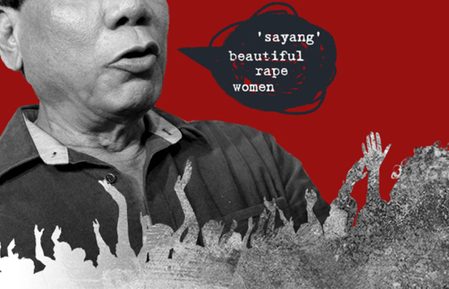



![[Just Saying] Diminished impact of SC Trillanes decision and Trillanes’ remedy](https://www.rappler.com/tachyon/2024/04/Diminished-impact-of-SC-Trillanes-decision-and-remedy.jpg?resize=257%2C257&crop=273px%2C0px%2C720px%2C720px)
![[Rappler Investigates] Son of a gun!](https://www.rappler.com/tachyon/2024/03/newsletter-duterte-quiboloy.jpg?resize=257%2C257&crop=450px%2C0px%2C1080px%2C1080px)
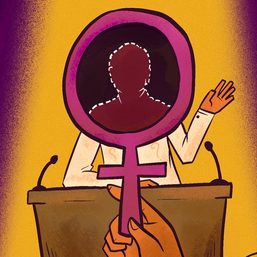
![[VIDEO EDITORIAL] Goodbye Duterte, hello Marcos](https://www.rappler.com/tachyon/2022/06/animated-duterte-marcos-transition-2.jpg?resize=257%2C257&crop=223px%2C0px%2C720px%2C720px)
![[EDITORIAL] Goodbye Duterte, hello Marcos](https://www.rappler.com/tachyon/2022/06/animated-duterte-marcos-transition-carousel.jpg?resize=257%2C257&crop_strategy=attention)
![[Dash of SAS] Women who benefit from Duterte’s sexism](https://www.rappler.com/tachyon/2021/04/tl-women-benefit-duterte-sexism-sq.jpg?resize=257%2C257&crop_strategy=attention)

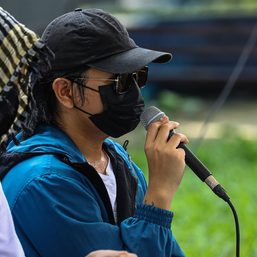
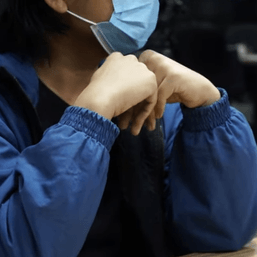
![[Rappler Investigates] Sexual harassment by the boss](https://www.rappler.com/tachyon/2024/02/sexual-harassment-by-the-boss-02292024.jpg?resize=257%2C257&crop=414px%2C0px%2C1080px%2C1080px)



![[Dash of SAS] Making abortion a constitutional right](https://www.rappler.com/tachyon/2024/03/Its_true_-_Flickr_-_Josh_Parrish-1.jpg?resize=257%2C257&crop=125px%2C0px%2C768px%2C768px)
![[WATCH] Spoil me but respect me: A sugar baby’s story](https://www.rappler.com/tachyon/2024/03/titlecard-03.jpg?resize=257%2C257&crop_strategy=attention)
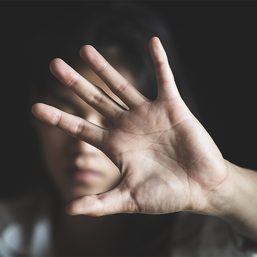
There are no comments yet. Add your comment to start the conversation.